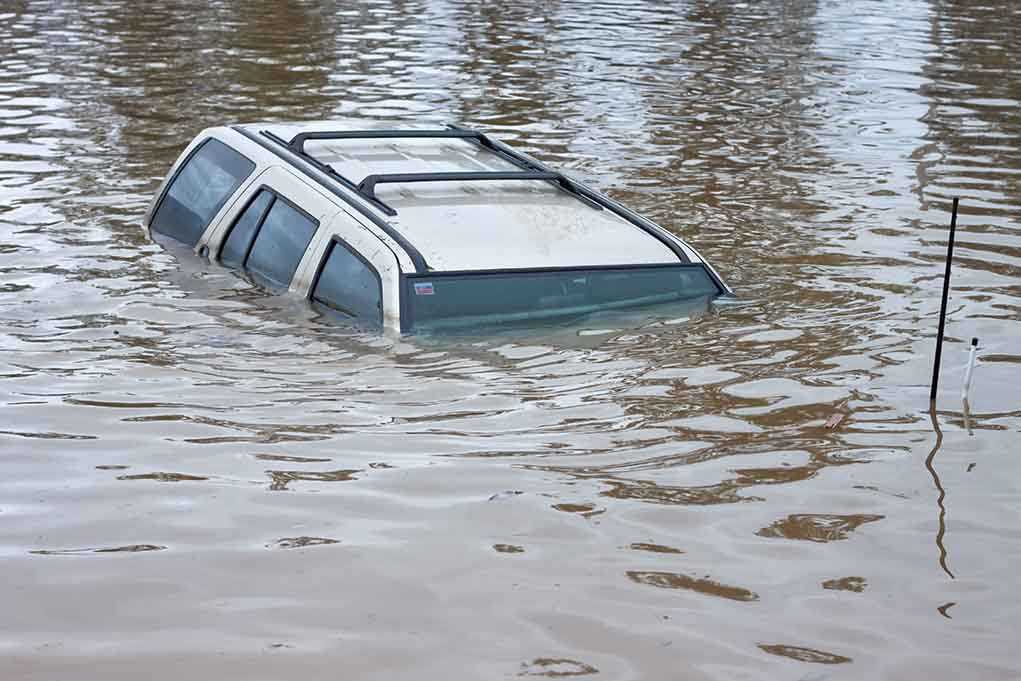
A flood devastates Central Texas, but instead of honest answers and accountability, Americans are forced to endure a political blame game, media spin, and familiar calls for more government control—while the real lessons are buried under an avalanche of “narrative” and bureaucratic finger-pointing.
At a Glance
- Catastrophic flooding in Central Texas leaves 52 dead, dozens missing, and communities in ruins—despite timely National Weather Service warnings.
- Media outlets push claims that budget cuts and staffing shortfalls at federal weather agencies caused the disaster, despite official evidence to the contrary.
- Local officials emphasize the unpredictable, unprecedented nature of the storm and the lack of local warning systems, not federal failures.
- Partisan narratives overshadow common-sense disaster preparedness and the needs of affected families, as politicians and media scramble to assign blame.
Catastrophic Floods, Real Tragedy—But the Narrative Machine Never Sleeps
Central Texas was battered by a natural disaster of historic proportions this July when the remnants of Tropical Storm Barry collided with a wall of tropical moisture, unleashing a deluge that forced the Guadalupe River to surge nearly 29 feet overnight. Fifty-two Texans lost their lives, another 37 remain missing, and thousands are left picking up the pieces as summer camps, homes, and entire communities are swamped. The event was so sudden and severe that even seasoned local officials were caught off guard. Yet, as the waters receded, it wasn’t long before a different kind of flood began: the media and political spin machine, churning out blame and narrative like clockwork.
The National Weather Service (NWS) issued multiple warnings in the early hours of July 4, including a flash flood alert at 1:14 a.m. for Kerr County, but the rapid onset and timing in the dead of night meant many residents never got the message in time. Local mayors and county judges made it clear: the lack of a local river warning system and the unprecedented ferocity of the event—not bureaucratic bungling—were to blame for the scale of the tragedy. But when have the facts ever stopped the narrative crowd? Within hours, major outlets like ABC News began pushing stories about alleged staffing shortfalls and budget cuts at the NWS, suggesting—without a shred of direct evidence—that more money and more federal power might have saved the day. Conservative voices, along with meteorologists actually working the front lines, called this out for what it was: speculative, politically motivated, and deeply disrespectful to the real victims and first responders.
Media and Political Playbook: Never Let a Crisis Go to Waste
It’s as predictable as the sun rising: when disaster strikes, the professional narrative engineers spring into action. In this case, the media’s preferred script was clear—use the suffering of Texans to argue for bigger budgets, more bureaucracy, and endless government expansion. ABC News and their ilk highlighted “potential” staffing shortfalls at the NWS, despite NWS warning logs and direct meteorological data confirming that warnings were issued well before the worst flooding occurred. The fact that rapid, nighttime floods are notoriously hard to respond to? Inconvenient. The reality that local officials have been asking for better local river monitoring systems—and not more federal red tape—for years? Ignored.
Meanwhile, conservative outlets and actual disaster management experts pointed out that blaming federal funding for a natural disaster of this scale is not only unsupported by the evidence, but distracts from the real issues at hand: local preparedness, layered warning systems, and community resilience. The affected families and first responders aren’t interested in D.C. talking points—they’re interested in practical solutions and honest answers. But the calls for “accountability” from the usual suspects sound suspiciously like the same tired pitch for more taxes, more control, and less responsibility at every level of government.
Lessons Buried Beneath the Politics—And What Texans Really Need
The July 2025 floods in Central Texas exposed the strengths and weaknesses of disaster response in America—not the supposed failings of the National Weather Service, but the dangerous tendency of our media and political class to turn every crisis into a referendum on their favorite spending priorities. The facts are plain: warnings were issued, but the speed and timing of the disaster limited their effectiveness. Local officials have stressed that the event was unpredictable and unprecedented, not the result of some grand conspiracy of federal neglect.
What’s truly needed? Practical investments in local warning systems, honest communication, and a return to accountability at every level—from Washington, to Austin, to Kerrville and beyond. Instead, we’re treated to a circus of blame, virtue-signaling, and bureaucratic wish-casting. Texans, and Americans everywhere, deserve better than to have their tragedies weaponized for political gain. They deserve leaders and media that tell the truth, own up to real mistakes, and stop using disaster as an excuse to grow the government. Until then, the only thing rising faster than the floodwaters is the level of spin and nonsense in our so-called national conversation.
Sources:
Wikipedia: July 2025 Central Texas Floods
ABC News: Central Texas Flooding—Timeline and Warning System
WIRED: Analysis of Texas Flood Warning System











